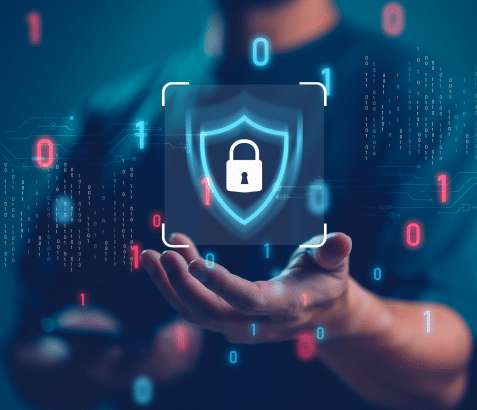A
- Access Control
- Agile Development
- AI Analytics
- AI Marketing
- Anomaly Detection
- App Code Obfuscation
- App Security
- Application Development
- Application Hardening
- Application Infrastructure
- Application Management
- Application Modernization
- Application Programming Interface (API)
- Application Security Testing (AST)
- Application Transformation
- Applied Artificial Intelligence
- Artificial Intelligence
- Asset Management
- Authentication
- Authorization
- Automated Machine Learning
- Automation Solutions
B
- Behavior-Driven Development (BDD)
- Behavioral Analysis
- Big Data
- Big Data Analytics
- Big Data Visualization
- Binary Analysis
- BlueOps Vulnerabilities
- Bug Bounty Programs
- Build Automation
- Building Analytics
- Building Management System
- Building Technologies
- Business Analytics
- Business Continuity Planning
C
- Chatbots
- CI/CD Tools
- Cloud Configuration
- Cloud Consulting
- Cloud Infrastructure
- Cloud Managed Services
- Cloud Management
- Cloud Migration Solutions
- Cloud Security
- Cloud Workspace
- Code Analysis Tools
- Compliance
- Configuration Management
- Container Security
- Continuous Delivery (CD)
- Continuous Deployment
- Continuous Integration (CI)
- Continuous Monitoring
- Conversational AI
- Credential Management
- Cross-Site Scripting (XSS)
- Cryptography Compliance Audits
- Customer Experience Strategy
- Customer Intelligence
- Cyber Security
D
- Data Analytics
- Data Loss Prevention
- Data Migration
- Data Platform
- Data Privacy
- Data Science
- Data Transformation
- Deep Learning
- Denial of Service (DoS)
- Dependency Scanning
- DevOps
- DevSecOps Pipeline
- Digital Engineering
- Digital Forensics
- Digital Transformation
- Disaster Recovery
- Distributed Version Control System (DVCS)
- Dynamic Application Security Testing (DAST)
E
- Embedded Engineering
- Encryption Key Management
- Endpoint Security
- Energy data analytics
- Energy Management
- Enterprise Application Services
- Enterprise Resource Planning (ERP)
- Enterprise Service Management (ESM)
- Ethical Hacking
- Event Logging
- Exploit Development
F
- False Positive
- File Integrity Monitoring
- Fileless Malware
- Firewall Configuration
- Forward Chaining Rules
- Fraud Detection
- Fraud Intelligence
- Fuzz Testing
- Fuzzy Logic
G
H
I
- Identity and Access Management (IAM)
- Incident Response
- Industrial IoT (IIoT)
- Industry 4.0
- Infrastructure as Code (IaC)
- Infrastructure Security
- Innovation Product Design
- Innovation Product Development
- Integration Testing
- Intelligent Automation
- Intelligent Process Automation
- Interactive Application Security Testing (IAST)
- Internet of Things (IoT)
- Internet of Things Platform
- Internet of Things Strategy
- Intrusion Detection System (IDS)
- IT/OT Convergence
J
- Jailbreaking
- Jamming Attacks
- Java Security
- JSON Web Tokens (JWT)
- Julia Programming Language
- Just-In-Time (JIT) Compilation
K
- Kernel Security
- Key Management Service (KMS)
- Knowledge-Based Authentication (KBA)
- Kubernetes Security
L
M
- Machine Learning (ML)
- Malware Analysis
- Man-in-the-Middle (MitM) Attacks
- Marketing Analytics
- Marketing Automation
- Marketing Technology
- Memory Protection
- Microservices
- Mobile Applications Security Testing (MAST)
- Mobile Device Management (MDM)
- Multi-Factor Authentication (MFA)
N
- Natural Language Processing (NLP)
- Network Intrusion Detection
- Network Segmentation
- Neural Network
- Next-Generation Firewalls (NGFW)
- NIST Compliance
- Non-Repudiation
O
- OAuth Protocol
- Obfuscation Techniques
- Offline Authentication
- Omnichannel Commerce
- Omnichannel Customer Experience (CX)
- Omnichannel Marketing
- Open API
- Open Web Application Security Project (OWASP)
- Open-Source Security
- Operational Efficiency
- Operations Intelligence
- Operations Strategy
- Orchestration Tools
- Out-of-Band (OOB) Authentication
P
- Patch Management
- Penetration Testing (Pen Testing)
- Phishing Detection
- Pipeline as Code
- Port Scanning
- Privileged Access Management (PAM)
- Process Analysis
- Process Automation
- Process Innovation
- Process Mapping
- Process Technology
- Protocol Analysis
Q
- Quality Assurance (QA)
- Quality Engineering and Assurance
- Quality Management Services
- Quantum Cryptography
- Quarantine Procedures
- Query Injection
R
- R Language
- Ransomware Protection
- Red Team Assessments
- Remediation
- Remote Collaboration
- Risk Assessment
- Risk Assessment Automation
- Robotic Process Automation (RPA)
- Rootkit Detection
- Runtime Application Self-Protection (RASP)
S
- Sandbox Environments
- Secure Coding Practices
- Security Automation
- Security Awareness Training
- Security Champions
- Security Information and Event Management (SIEM)
- Security Orchestration
- Security Posture
- Shift-Left Security
- Smart City
- Smart Home
- Smart Manufacturing
- Smart Meters
- Smart Products
- Smart Spaces
- Software as a Service (SaaS)
- Software Composition Analysis (SCA)
- Software Defined Networking (SDN)
- Software Development Life Cycle (SDLC)
- Static Application Security Testing (SAST)
- Structured Data
T
- Telehealth
- Telemedicine
- Test Automation
- Test-Driven Development (TDD)
- Thick Data
- Threat Hunting
- Threat Intelligence
- Threat Modeling
- Tokenization
- Trade Finance Process Automation
- Trojan Detection
- Two-Factor Authentication (2FA)
U
- UEFI Secure Boot
- Unified Device Management
- Unified Threat Management (UTM)
- Unstructured Data
- URL Filtering
- User Behavior Analytics (UBA)
- User Experience Design
- User Provisioning
V
- Vendor Risk Management
- Version Control Systems
- Virtual Reality (VR)
- Virus Scanning
- Voice Biometrics
- VPN Configuration
- Vulnerability Assessments (VA)
- Vulnerability Management
- Vulnerability Remediation
W
- Web Application Firewall (WAF)
- Web Security Standards
- White Box Testing
- Wi-Fi Protected Access (WPA)
- Wireless Security
X
Y
Z
Digital Forensics
Simple Definition for Beginners:
Digital forensics is the process of collecting, analyzing, and presenting digital evidence for legal purposes.
Common Use Example:
A digital forensics team investigates a cyber attack by analyzing computer logs, network traffic, and file metadata to determine how the breach occurred and who was responsible.
Technical Definition for Professionals:
Digital forensics, also known as computer forensics, is a branch of forensic science focused on the investigation, analysis, and preservation of digital evidence from electronic devices and systems. It aims to uncover and document digital artifacts, such as files, emails, logs, and metadata, to support legal investigations, criminal proceedings, incident response, and cybersecurity incidents. Key aspects and practices of digital forensics include:
- Evidence Collection: Gathering electronic evidence from devices such as computers, mobile phones, tablets, servers, and storage devices.
- Data Preservation: Ensuring the integrity and authenticity of collected evidence through proper handling, documentation, and chain of custody procedures.
- Data Analysis: Examining digital artifacts using specialized tools and techniques to identify relevant information, patterns, timelines, and correlations.
- Incident Reconstruction: Reconstructing events and activities related to a security incident or cybercrime to understand the sequence of events and the actions of involved parties.
- Malware Analysis: Investigating malicious software to determine its functionality, origins, and impact on affected systems.
- Network Forensics: Analyzing network traffic, logs, and communication protocols to trace the source and scope of cyber attacks or unauthorized activities.
- Forensic Reporting: Documenting findings, observations, and conclusions in detailed reports and presenting them as evidence in legal proceedings or internal investigations.
- Legal Compliance: Adhering to legal and regulatory requirements, including rules of evidence, chain of custody, and privacy laws, throughout the forensic process.
Digital forensics plays a crucial role in cybersecurity, law enforcement, incident response, litigation support, and ensuring the integrity and accountability of digital information.
Digital Forensics

